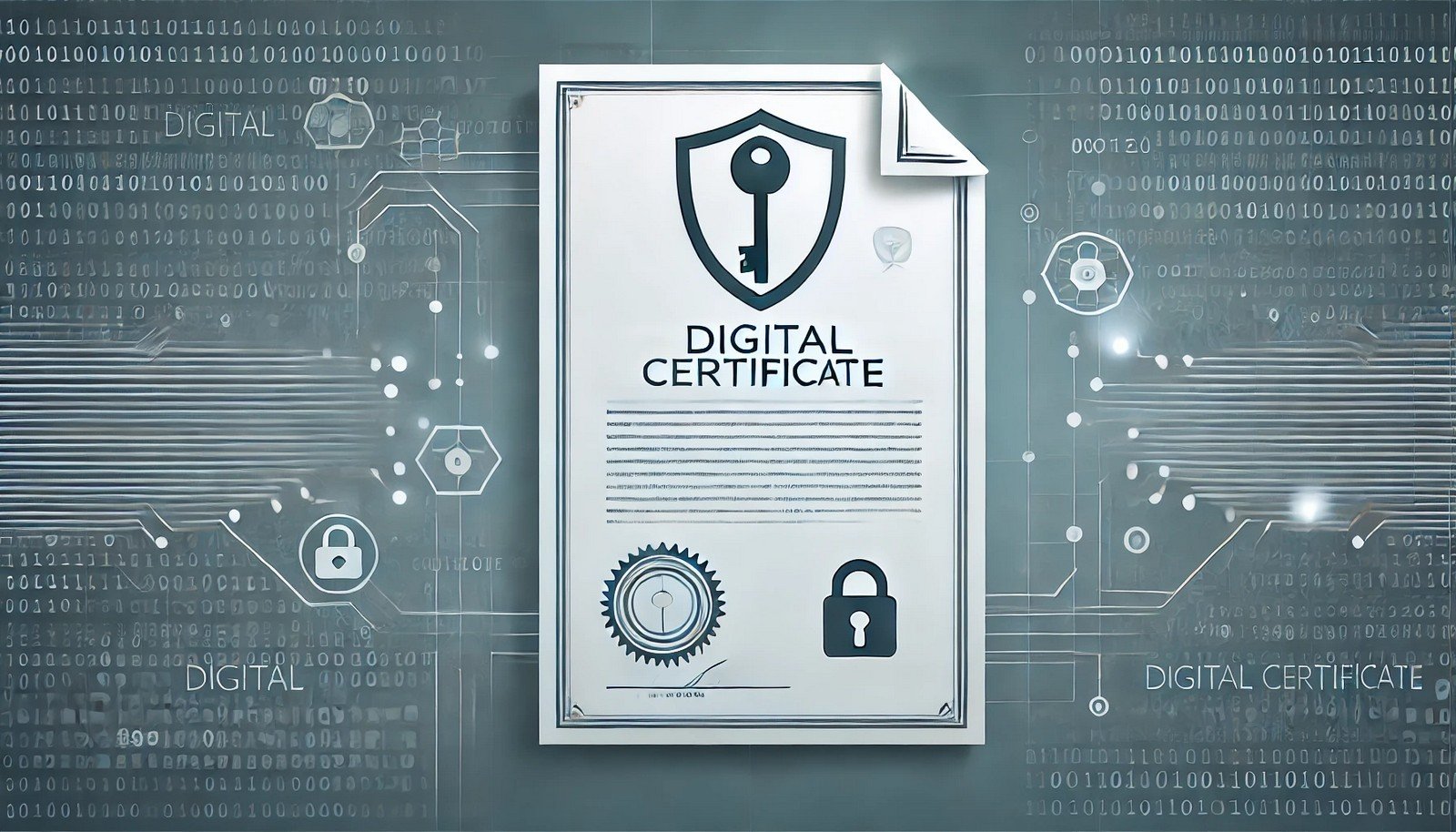Digital Certificate
 (Representational Image | Source: Dall-E)
(Representational Image | Source: Dall-E)
Quick Navigation:
- Digital Certificate Definition
- Digital Certificate Explained Easy
- Digital Certificate Origin
- Digital Certificate Etymology
- Digital Certificate Usage Trends
- Digital Certificate Usage
- Digital Certificate Examples in Context
- Digital Certificate FAQ
- Digital Certificate Related Words
Digital Certificate Definition
A digital certificate is an electronic document used to prove the ownership of a public key. It is issued by a trusted Certificate Authority (CA) and contains details such as the owner's public key, the certificate issuer, expiration date, and a unique serial number. Digital certificates ensure secure communication over networks by enabling encryption, authentication, and digital signatures. They are widely used in SSL/TLS security for websites, email encryption, and secure software distribution.
Digital Certificate Explained Easy
Think of a digital certificate like a passport for the internet. Just as a passport proves your identity in a foreign country, a digital certificate proves the identity of a website or a person online. If you visit a secure website, the digital certificate helps confirm that the site is genuine and not a fake one trying to steal your information.
Digital Certificate Origin
The concept of digital certificates emerged with the need for secure online communication. Early cryptographic methods in the 1970s laid the foundation, and in the 1990s, Certificate Authorities (CAs) were established to issue trusted digital certificates. The adoption of SSL/TLS in web browsers accelerated their widespread use.
Digital Certificate Etymology
The term “digital certificate” derives from the Latin word certificare, meaning "to make certain." In computing, it represents an assurance of authenticity in digital communications.
Digital Certificate Usage Trends
With the rise of online transactions and cybersecurity threats, digital certificates have become essential. Their usage has expanded beyond websites to email encryption, code signing for software, and securing IoT devices. Governments and enterprises increasingly rely on digital certificates for authentication and secure communications.
Digital Certificate Usage
- Formal/Technical Tagging:
- Cybersecurity
- Public Key Infrastructure (PKI)
- Encryption - Typical Collocations:
- "SSL/TLS digital certificate"
- "public key certificate"
- "digital certificate authentication"
- "X.509 certificate"
Digital Certificate Examples in Context
- A bank’s website uses a digital certificate to prove its authenticity and encrypt sensitive transactions.
- Email encryption relies on digital certificates to ensure that only the intended recipient can read the message.
- Developers sign their software with a digital certificate to verify its authenticity and prevent tampering.
Digital Certificate FAQ
- What is a digital certificate?
A digital certificate is an electronic document that verifies the identity of an entity and enables secure communication. - How does a digital certificate work?
It uses public key cryptography to authenticate the identity of a user, device, or website, ensuring encrypted and secure data exchange. - Who issues digital certificates?
Trusted Certificate Authorities (CAs) such as DigiCert, GlobalSign, and Let's Encrypt issue digital certificates. - What is an SSL/TLS certificate?
It is a type of digital certificate used to secure websites by encrypting communication between users and the server. - How long do digital certificates last?
Digital certificates typically expire in 1-2 years, requiring renewal to maintain security. - Can digital certificates be faked?
While rare, attackers can attempt fraud. However, browsers and operating systems verify certificates against trusted CAs to detect and prevent misuse. - What happens if a digital certificate expires?
An expired certificate can cause security warnings in browsers, making websites appear untrusted and insecure. - How do digital certificates help in cybersecurity?
They prevent data interception, verify identities, and enable encrypted communication, reducing cyber threats. - What is a self-signed certificate?
It is a digital certificate created and signed by its owner instead of a trusted CA, usually used for internal purposes. - How are digital certificates revoked?
Certificates can be revoked using Certificate Revocation Lists (CRLs) or the Online Certificate Status Protocol (OCSP) if they are compromised.
Digital Certificate Related Words
- Categories/Topics:
- Cybersecurity
- Encryption
- Digital Authentication
Did you know?
The first SSL certificate was issued in 1995 by Netscape, laying the foundation for secure web transactions. Today, over 95% of websites use SSL/TLS digital certificates to protect user data and ensure trust in online interactions.
PicDictionary.com is an online dictionary in pictures. If you have questions or suggestions, please reach out to us on WhatsApp or Twitter.Authors | Arjun Vishnu | @ArjunAndVishnu

I am Vishnu. I like AI, Linux, Single Board Computers, and Cloud Computing. I create the web & video content, and I also write for popular websites.
My younger brother, Arjun handles image & video editing. Together, we run a YouTube Channel that's focused on reviewing gadgets and explaining technology.



Comments powered by CComment